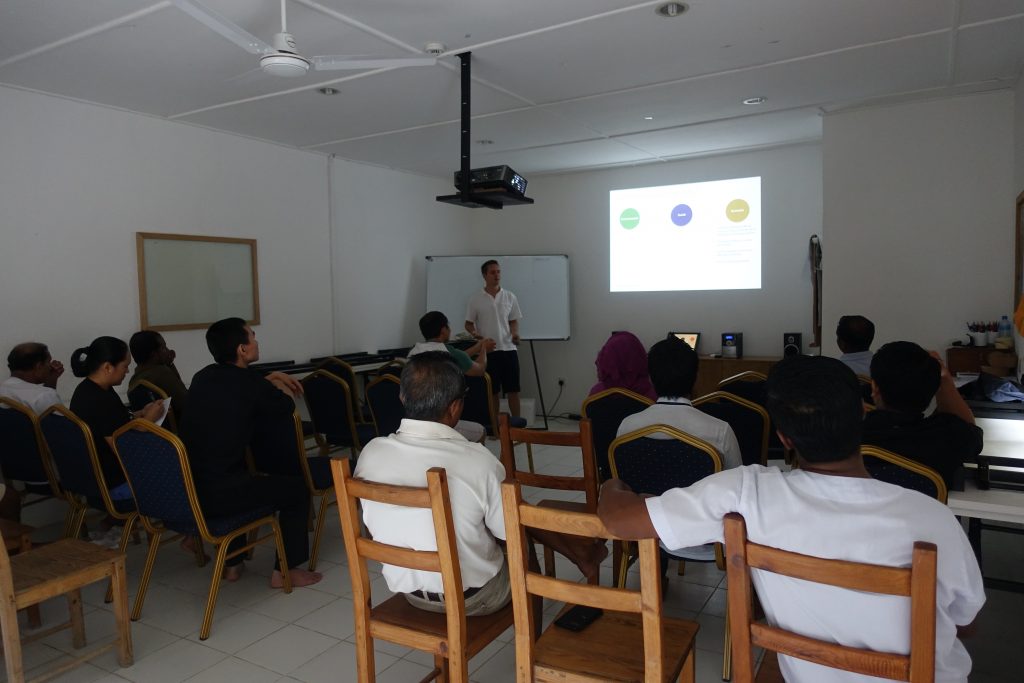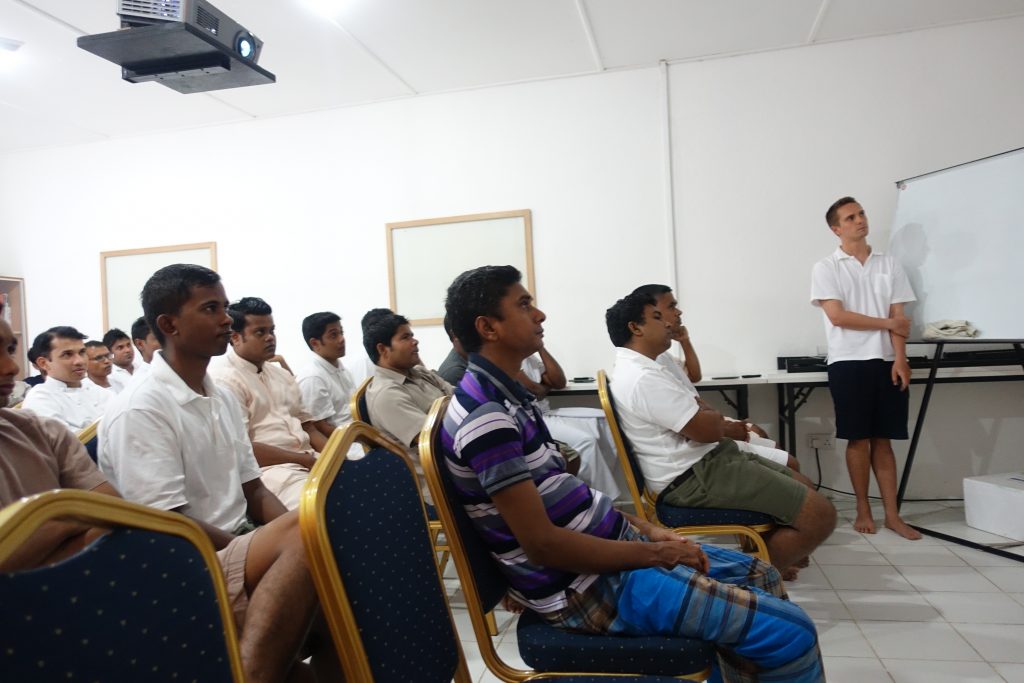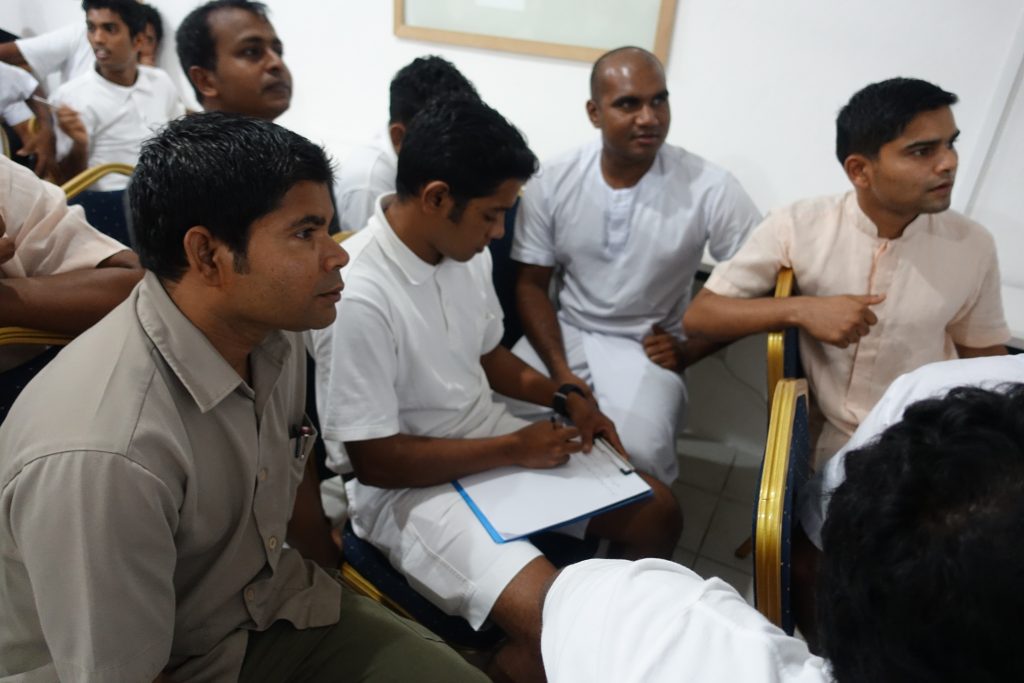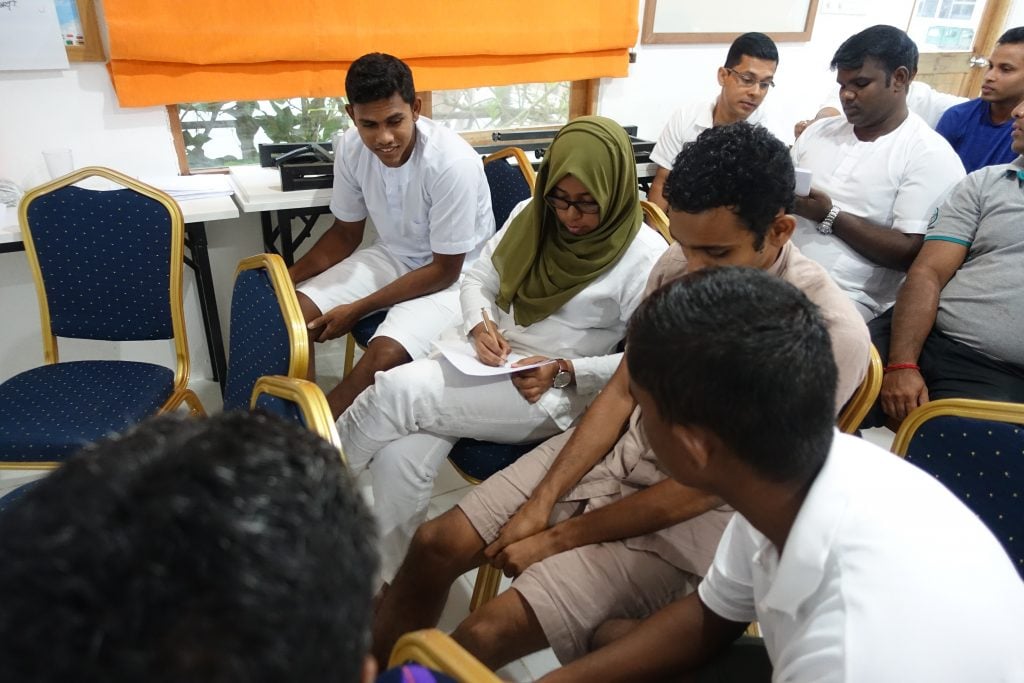When it comes to protecting our planet, education is paramount; which is why all of the hosts here at Gili undertake environmental awareness training twice a year. The aims of our recent training session was twofold. Firstly, to teach hosts about environmental issues, such as climate change and ocean pollution; and secondly, to teach them how they can help the environment by living more sustainably.

Like any other industry, tourism has the potential to impact the environment through carbon dioxide (CO2) emissions and other activities such as improper waste management, and overuse of resources. As part of that industry we at Gili understand that we must accept responsibility and take action – this is why we keep sustainability at the heart of our business.
“Climate change is no longer some far-off problem; it is happening here, it is happening now”
– Barack Obama
Climate change will eventually affect us all in some way. Across the world we have already started to see the effects of global warming through extreme weather events, glacier retreat, ocean acidification, and sea level rise.
With no ground surface higher than three meters, and 80 percent of the land area lying below one meter above average sea level, The Republic of Maldives is the flattest country on Earth; making it particularly vulnerable to rising sea levels. An old rule of thumb is that every vertical inch of sea-level rise moves the ocean 50 to 100 inches inland. Based on mid–level scenarios for global warming emissions, the Maldives is projected to experience sea level rise of half a meter and could lose around 77 percent of its land area by the year 2100.
But it’s not just rising waters that the Maldives needs to contend with. Warming ocean temperatures across the planet along with ocean acidification have decimated coral reefs. As a country entirely made of coral structures, the existence of the Maldives hinges on the survival of corals. Aside from being the most diverse ecosystems on the planet, coral reefs help to protect the coastline from the damaging effects of wave action and tropical storms. They are an integral part of the food chain, and they also help with the carbon cycle by taking calcium ions and dissolved carbon dioxide from the water to form their hard skeletons. A lot of people also depend on corals for their livelihood with coral reefs contributing over 30 billion dollars to the world economy each year. But as temperatures rise, mass coral bleaching events and infectious disease outbreaks are happening more often.
An equal or perhaps greater problem that corals face is that of ocean acidification. Because of mankind’s penchant for burning fossil fuels, CO2 levels in the atmosphere are higher than they have ever been in the past 400,000 years. Our oceans act as a carbon sink and around 25% of the CO2 humans produce is absorbed by the sea every year. Unfortunately this is changing the chemistry of seawater, lowering its pH and making the water more acidic. These conditions are actually causing the shells of some animals to dissolve, but it also slows the growth of coral skeletons, and makes reefs more brittle and less resistant to stress.

We now stand on the threshold of new geological era that some have called ‘The Anthropocene’ (from anthropo, for “man,” and cene, for “new”). An era in which human activity has been the dominant influence on climate and the environment. It is clear that the planet needs our help, and eco-friendly behavior has to start somewhere. That’s why we feel it’s important to educate our hosts about environmental issues.
Training sessions last for one hour and thirty minutes, and we ensure 100% attendance; hosts showed a genuine interest in the subject and demonstrated their commitment to further learning by asking questions. Each session consists of around 30 hosts, and at the end of the presentation they are split into teams and take part in a group quiz. The quiz helps to cement what they have learned by giving them the opportunity to discuss the topics with each other.


In the grand scheme of things we may appear to be a small community on a small island, and while we can’t do everything, we can do something. By teaching hosts how they can reduce their own carbon footprint by living more sustainably we become part of a global community dedicated to helping the planet.